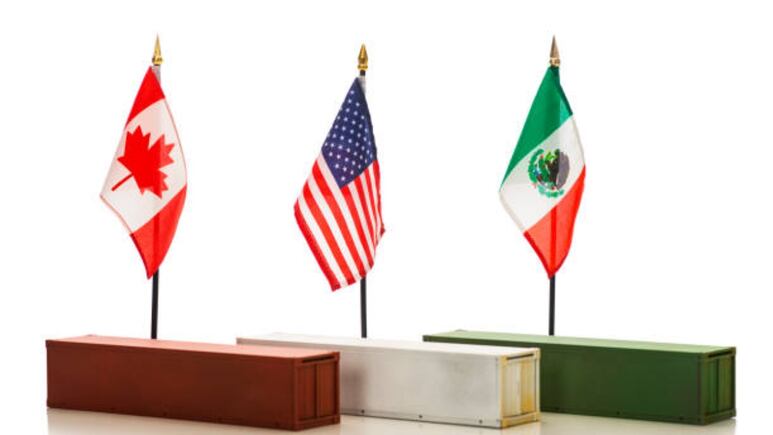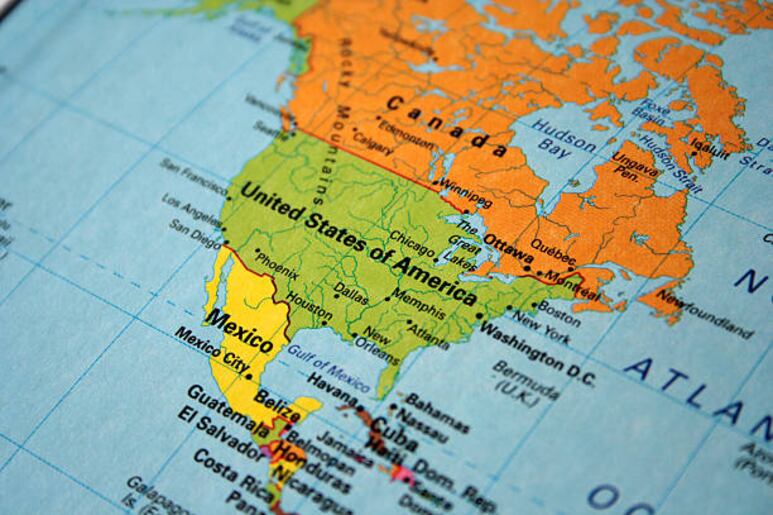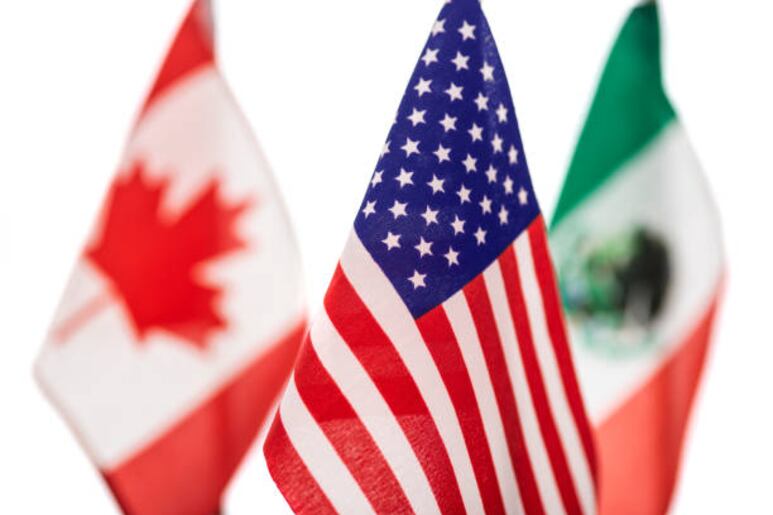Mexico and North America
Beyond the obligatory courtesies between governments, the Sheinbaum administration and whoever is elected in the U.S. will face a very complicated dialogue

The importance of collaboration between the three North American countries was emphasized in President Claudia Sheinbaum’s inaugural speech.
Publicidad
North America is currently the most important economic region in the world, despite growing competition from China, the Arab bloc — bolstered by its finances — or the European Union.

But more importantly, according to many experts, North America cannot remain competitive unless the United States, Mexico, and North American value chains are part of the equation.
“If we make the intellectual exercise of imagining that Russia disappeared tomorrow, we would miss them globally due to oil and gas. If Mexico disappeared tomorrow, there are 20 value chains where chaos would erupt,” recently estimated José Antonio Meade, former Secretary of Finance and Foreign Affairs, during an online roundtable held by the Society of the Americas.
Mexico’s importance is thus considerable. It allows the country to act independently, but it also comes with obligations: its well-being is linked to the North American region and, particularly, to the U.S.
Publicidad
This point cannot be ignored: American prosperity, and to some extent its power, depends on a good relationship with Mexico, but it also subjects Mexico to special scrutiny by the U.S. political apparatus.
Publicidad
Beyond the obligatory courtesies between sovereign governments, the administration of Claudia Sheinbaum and whoever is elected in the U.S. will face a very complicated dialogue, with issues ranging from security and migration to the role of China in Mexican exports and automotive plants.
Mexico is the U.S.’s main trading partner in the world, with bilateral trade totaling 807 billion dollars in 2023, and an indispensable ally in stopping illegal migration flows from Central and South America. This year, Mexican authorities have intercepted more than 280,000 migrants.

In fact, problems are already foreseen in the discussions on the review of the U.S.-Mexico-Canada Agreement (USMCA) in 2026, especially with the increasing protectionism reflected in the current U.S. presidential campaign.
Each and every one of these issues is complicated.
And this is without considering that the close relationship makes Mexico of interest to other powers. Beyond the possibility of accessing North American markets, this interest ranges from simple espionage to, in extreme cases, potential disruptions to supply chains. Furthermore, Mexico’s proximity to the U.S. makes it a “collateral damage” target in terrorist attacks or acts of war, just as it has become a transit point for migrants or drug traffickers.
But this proximity, which highlights its independence, also subjects Mexico to criticism and pressure.
BY JOSÉ CARREÑO FIGUERAS
CONTRIBUTOR
JOSE.CARRENO@ELHERALDODEMEXICO.COM
@CARRENOJOSE1
Nota publicada originalmente en El Heraldo de México
Publicidad
Publicidad
Más Leídas | Heraldo USA
EEUU quita visa americana a famoso cantante de corridos tumbados
Por Heraldo USA
¿Qué fue de Roxana Martínez y cómo se ve 'La Tetanic' en 2024?
Por Heraldo USA
No sólo es Karely Ruiz: conoce el top 5 de las mexicanas mejor pagadas de OnlyFans
Por Heraldo USA
La visa canadiense se complica: 7 preguntas que debes responder sin errores
Por Heraldo USA
Publicidad
Más noticias de United states
Más noticias de México










